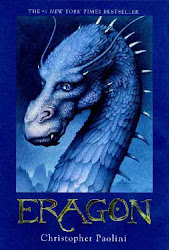Publ: 1946 Collins
My own copy
ISBN: -
Genre: Non-fiction –Diary
Pages: 320p
I read and do research on diaires
Rating: ***** *****
What led you to pick up this book?
I read and do research on diaires – especially ones with a countryside content.
Describe the book.
This is my favourite country diary and the third time that I have read it. A W Boyd was a noted English naturalist and the diary covers the period from 1933 to 1945. Since I live in Cheshire the book is especially relevant to me and reading about agricultural practices that have gone for ever is very nostalgic. The changes in the wildlife are not so much nostalgic as sad – in most cases they reflect a loss of birdlife of enormous proportions. There are however bright spots as the book shows an increase in insects which in those days were scarce and are now quite common.
Thoughts on the book jacket / cover.
Regrettably, although I have two copies I don’t have one with a cover. (I have now ordered another copy - this one will have a dust jacket and I am looking forward to it arriving. I am hoping that it will be in the tradition of the New Naturalist series.)
Would I recommend it?
Absolutely – to anyone interested in the countryside, Cheshire, natural history, superstitions, diaries... in fact anyone!
A.W. BOYD (1885-1959) was a countryman and naturalist, author of A Country Parish (1951) one of the famous Collins New Naturalist series. One of the last of the old-style amateur naturalists; agent of the family yarn business James Boyd & Son. A Cheshire man to his fingertips, the GIlbert White of Great Budworth.
Great field skills; among the most active pioneer bird-ringers. Original papers on the tree sparrow, greenfinch and swallow; put sewage farms and the Staffordshire lakes on the birdwatcher's map. Left vast archive of notebooks and nature diaries, all in his characteristic neat minuscule hand.
Editor of British Birds 1944-58, and a leading light of the BTO, BOU and RSPB in the 1940s and 1950s. His long-running column in Manchester Guardian resulted in The Country Diary of a Cheshire Man (1946). Master of country lore; observed ancient local customs, always raising his hat to magpies as he rode along in his high car.
Served in the Lancashire Fusiliers at Gallipoli, losing an eye and gaining an MC. The most modest of men, kind, affable and without enemies. Uncle and Mentor of James Fisher

















